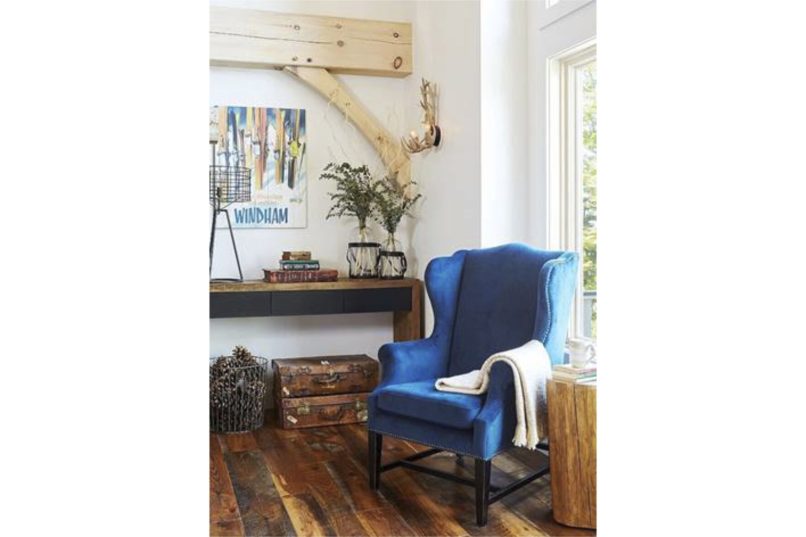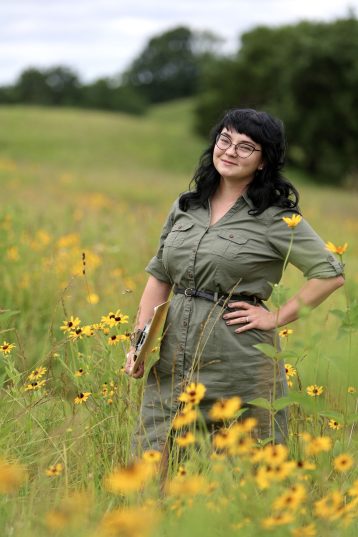The coffee shops and restaurants in Dubuque are frequent meeting spots for people running for office and for their supporters. But even beyond these meeting places, something’s abuzz across Iowa and the U.S.
During primary season, residents in Iowa brace themselves for the arrival of politicians because the state has long been considered a pulse of the nation. In this year’s mid-term elections, Iowa is again on par with national politics — this time, with the number of women running for office.
While there are a number of motivations behind this momentum, two major refrains sound out: Equal representation and children’s future.
Nancy Fett, running for Iowa House District 57, is one who wants to make Iowa House more balanced, and yet she had seen herself as a “behind-the scenes person, organizing and coordinating.”
In her campaign, there is little sign of that. She aims to be energized and energizing, and she speaks to be heard.
“I’m running for a million reasons,” she said. “It’s unconscionable what we’re doing to education. I grew up in Iowa when education was strong and when it took care of our most vulnerable. To get to a skilled workforce, we have to invest in it. More than half of our jobs require more than a high school education.”
As a Social Work professor at Loras College, Fett said she’s now “living out the message (she’s) been telling students,” who represent the youth and their future she wants to fight for.
Lindsay James, running for Iowa House District 99, sees her campaign strengthened by the numbers and voices in a “movement moment.”
“Women all across the country are stepping out and stepping up in profound ways,” James said. “And young girls are noticing. I’m noticing a groundswell of hope, a recognition that the future doesn’t belong to us. It belongs to our kids. And that if we are going to give them their best chance at life, adults must step up and listen with compassion and lead with conviction.”
To accomplish this, women believe we need a range of candidates who get elected to be effective policymakers.
“Diversity at our decision-making tables makes us stronger,” James said. “Without our voice, the conversation is unbalanced, political possibility is limited, and issues facing women can too easily get swept aside.”
Strength comes from balanced representation, those running said. However, today, only 19 percent of U.S. Congress seats are held by women. In Iowa House and Senate, 34 women hold seats for 22.7 percent representation.
Pauline Chilton, James’ opponent in District 99, is running to meet the needs in her district, too.
“When I made the Iowa house decision, I was feeling an internal tug,” Chilton said. “It took time to figure out what it was, and I felt peace when I made the decision.”
Chilton has noticed that, as a woman, it can be difficult to get to the issues.
“Women are scrutinized for everything even before (a conversation),” she said. “But door-knocking and meeting people face to face has been valuable. It’s personal, and I love hearing stories.”
She’s received questions about being a conservative woman of color, and she sees this in line with values of individuality and rights. These, she noted, need to be present in government.
“If we want a truly representative government, then we need to elect people that come from different backgrounds and experiences,” Chilton said. “People appreciate it when you show up. I want to learn what (issues are) important to them. Many are not partisan issues.”
Chilton sees issues like educational opportunities and workforce development as non-partisan.
Abby Finkenauer, looking to unseat Congressman Rod Blum in November, is motivated to run for reasons that tend to connect constituents. As the long race concludes, her motivation stays strong because of personal connections, both recent and long-standing.
“(My campaign) is personal for the woman I met who is worried about being able to afford her oxygen all 24 hours,” she said. “It’s personal for the man I met when I was out knocking doors who is having to spending $10,000 a month on his cancer treatment. It’s personal for folks like my sister and brother-in-law who are corn and soybean farmers and are worried about their future every day because of a trade war started on twitter. And it’s the idea that I can make things just a bit easier for them. That’s what keeps me motivated.”
As Finkenauer listens to stories during her campaign, she said she sees the connection between working for people and creating a strong, balanced Congress.
“This is about making sure that the folks in our government actually represent the make-up of our country,” she said. “This is about making sure women are heard on issues that impact our lives every single day. For too long, women have been kept out of the rooms where decisions are being made. It’s time for that to change.”
Change is another strong refrain from all of these candidates.
Kate Larson, a new member to the Dubuque City Council, was elected when Joyce Connors retired, and she is part of the change many communities are seeing. Larson shared her perspectives on women as potential candidates at any level.
When it comes to running for office, “women need to start encouraging other women to run,” she said.
And, Larson continued, part of that encouragement comes with realizing the extraordinary time commitment involved, with learning how to say “no” because women tend to “feel a heavy obligation” to go above and beyond, and with exerting confidence for instance, not using the word “if.”
“Because women want to do the best job possible, they need to find a balance,” she said. “Committing to public service really is a service, and they want to do the job justice.”
It’s vital that women are part of political discussions.
“When there’s no local representation of women, making a statement wouldn’t be as impactful,” Larson said. “Women need a voice.”
Those voices should come from any side, too, because they “help with viewpoints.”
Larson encouraged anyone who knows of someone — especially women, women of color and people from LGBTQ communities — who would represent people well to “give them a nudge because it may just be what they need.”
Larson emphasized that women need reminding that they are “awesome, capable and knowledgeable.”
Some of women candidates will be voted into office while some will not. No matter which way elections go, it’s vital for our democracy that we hold all of our elected officials — women, men, LGBTQ individuals — to effective and fair work.
The anticipation we can see and hear across Iowa and the United States is from women stepping up in record numbers to bridge, finally, the gaps in representation. All they need is our vote.
Angela Jones is a freelance writer from Dubuque.













